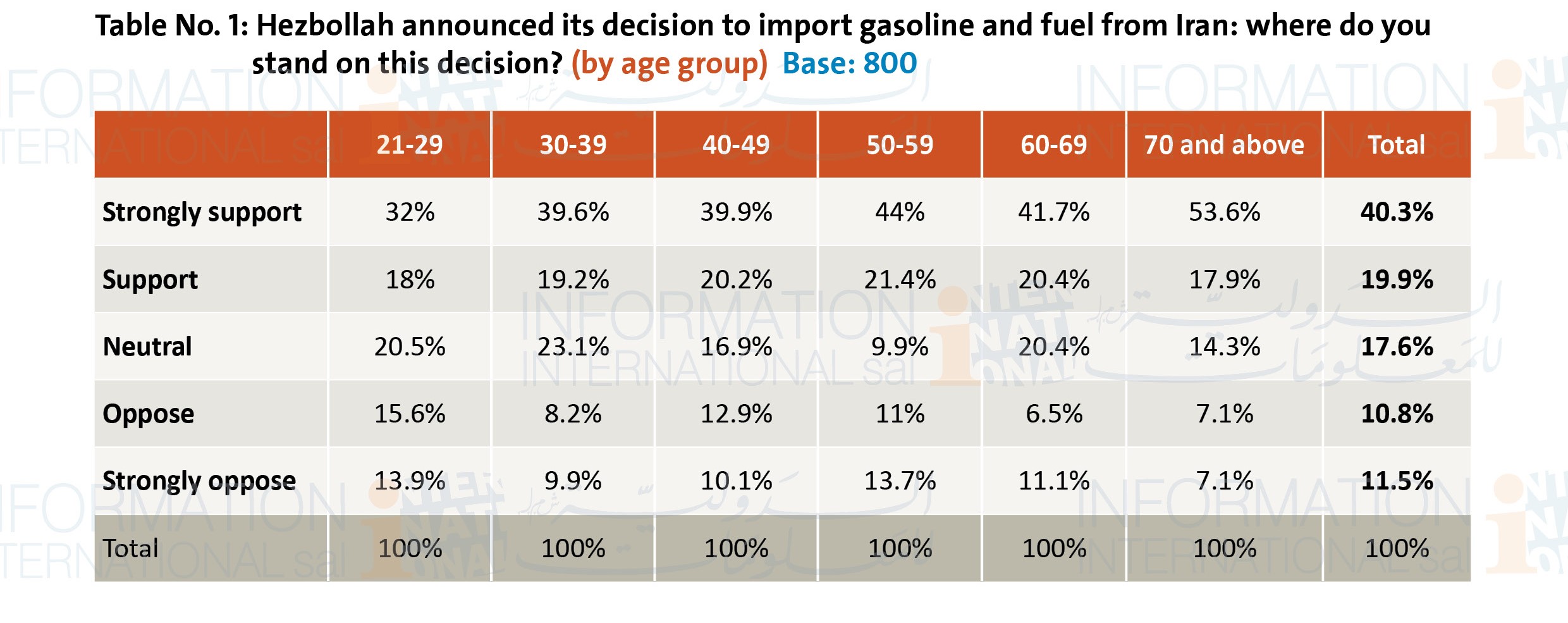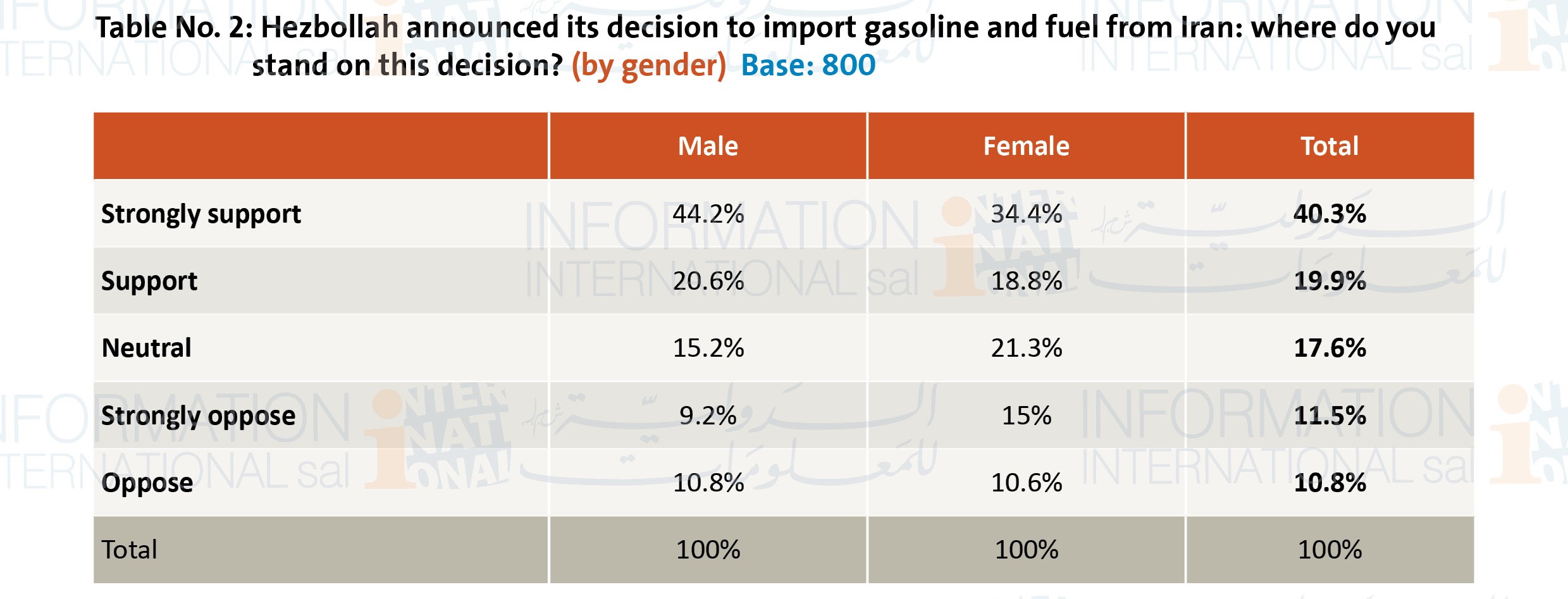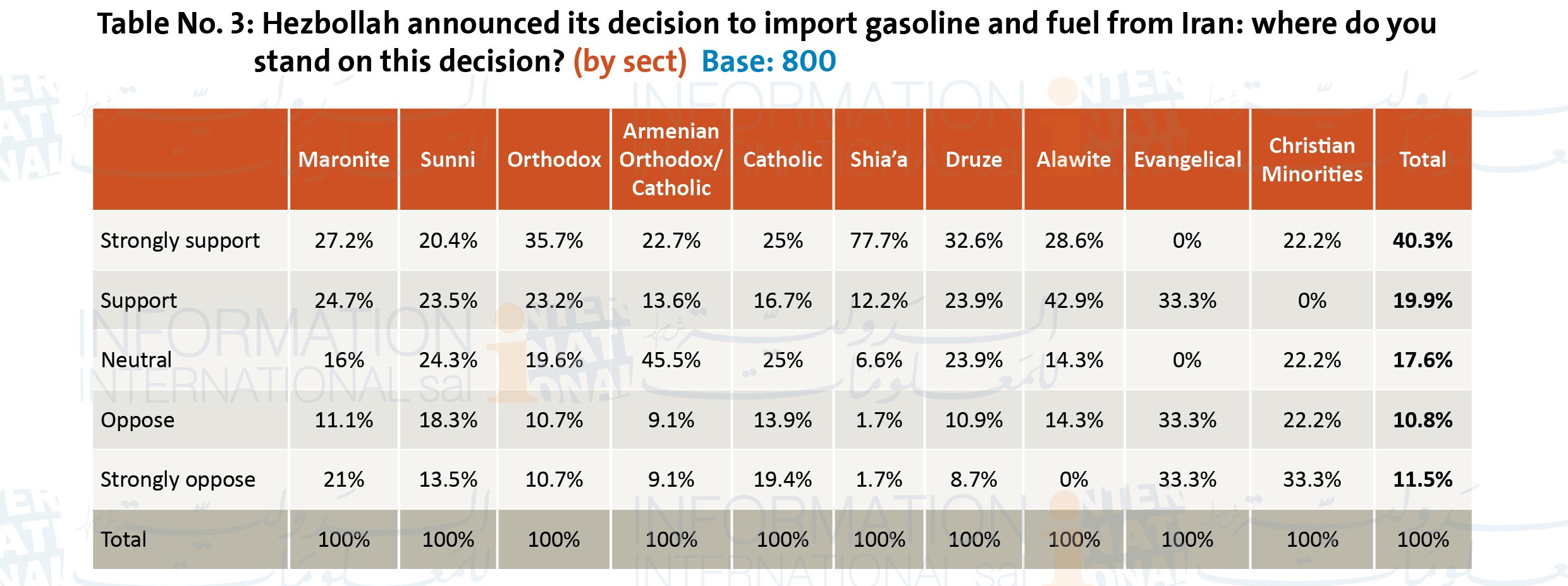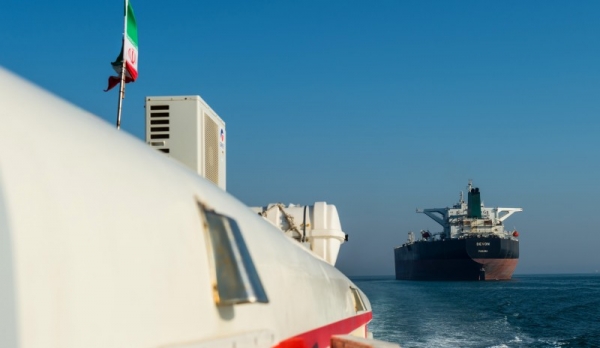Polling the Lebanese on Hezbollah’s Decision to Import Fuel from Iran
Polling the Lebanese
on Hezbollah’s Decision to Import Fuel from Iran
60% support the decision, 22% oppose it and 65% would certainly purchase the Iranian gasoline/diesel
In order to find out the Lebanese people’s position on Hezbollah’s decision to import gasoline and diesel from Iran and their willingness to purchase them, Information International conducted a telephone survey, between August 23 and 25, 2021, on a representative sample of 800 Lebanese distributed over the various regions, sects and age groups (see the sample description).
1. What is your position on Hezbollah’s decision to import gasoline and diesel from Iran? 60.1% support the decision
The answers to this question shows that 60.1% of the Lebanese support Hezbollah’s decision to import gasoline and diesel from Iran, 22.3% oppose it, while 17.6% are neutral (Figure 1).

By age group, the answers show that the older respondents are more supportive of Hezbollah’s decision to import gasoline and diesel from Iran. Only 50% of the respondents aged between 21-29 years support the decision. The percentage increases with age, reaching 62.1% for those in the age group of 60-69 years, and 71.5% for those aged 70 and above (Table No. 1).

By gender, the poll’s findings show greater support for Hezbollah’s decision among male respondents (64.8%; where 44.2% “strongly support” and 20.6% “support”), compared to 53.2% among female respondents (40.3% “strongly support” and 19.9% “support”). (Table No. 2)

The survey found a significant link between the position of supporting or opposing Hezbollah’s decision to import fuel from Iran and the respondent’s sect. As per the findings, the highest opposition is registered among the Maronite (21.1%), Catholic (19.4%) and Sunni (13.5%) respondents, while the lowest percentage is observed among the Druze (8.7%) and Shia’a (1.7%) (Table No. 3).

2. What would your position be if the fuel arrives from Iran? 65.1% would buy it
About two-thirds of the respondents (65.1%) expressed their willingness to purchase the Iranian fuel, compared to 14% who might purchase it, and 14% who said they would never purchase it (Figure 2).

Answers by age group show that the willingness to purchase Iranian fuel is highest among the older respondents. 57.4% of the respondents aged between 21-29 years expressed their willingness to purchase the Iranian fuel imported by Hezbollah. The percentage increases with age, reaching 69.2% for those in the age group of 50-59 years, and 67.9% for those aged 70 years and above. (Table No. 4)

By gender, the poll’s findings show that 68.8% of male respondents are strongly willing to purchase the Iranian gasoline diesel compared to 59.7% of female respondents (Table No.5).

By sect, the findings show that the highest opposition is observed among Catholic (22.2%), Maronite (19.8%) and Sunni (17%) respondents, while the lowest opposition is registered among the Druze (8.7%) and Shia’a (6.1%) respondents (Table No. 6).

3. Stance toward purchasing the Iranian fuel based on the position from Hezbollah’s decision to import gasoline and diesel from Iran? 21.7% of those who strongly oppose the decision would moderately purchase the imported fuel
A vast majority of respondents supporting Hezbollah’s decision (84.9% of those who support it and 96.9% who strongly support it) expressed strong willingness to purchase the Iranian fuel, while 29.1% of those opposing and 21.7% of those strongly opposing the decision expressed their moderate willingness. Notably, 54.3% and 41.9% confirmed their absolute refusal (Table No. 7).

Sample description
This telephone poll was conducted between August 23 and 25, 2021. It involved a sample of 800 respondents, distributed over the Lebanese governorates (Mohafaza) as follows:
By gender: 45% females-55% males
By age group: 15.3% (21-29 years), 22.8% (30-39 years), 22.3% (40-49 years), 22.8% (50-59 years), 13.5% (60-69 years) and 3.5% (70 years and above).
By sect: Maronite (20.3%), Orthodox (7%), Catholic (4.5%), Armenian Orthodox/Catholic (2.8%), Sunni (28.8%), Shia’a (28.6%), Druze (5.8%), Alawite (0.9%), Evangelical (0.4%) and Christian Minorities (1.1%).








Leave A Comment